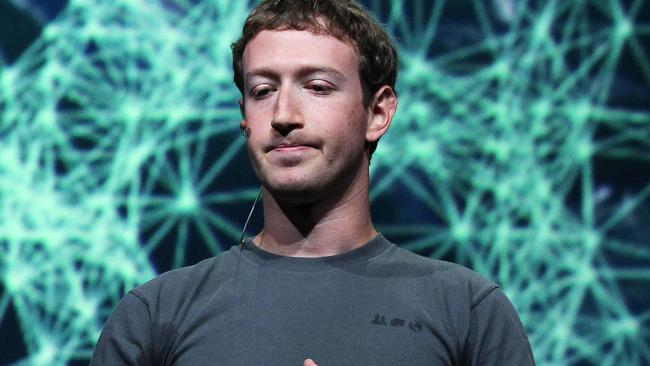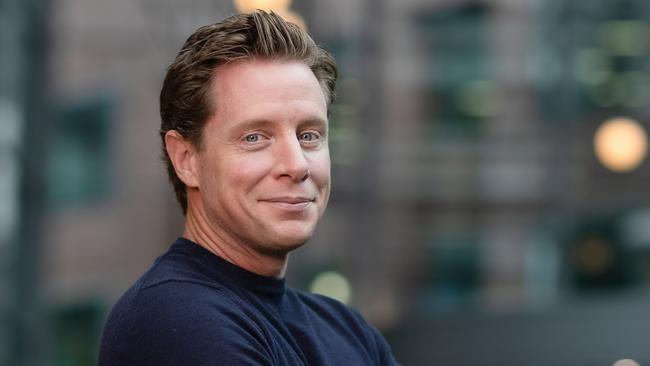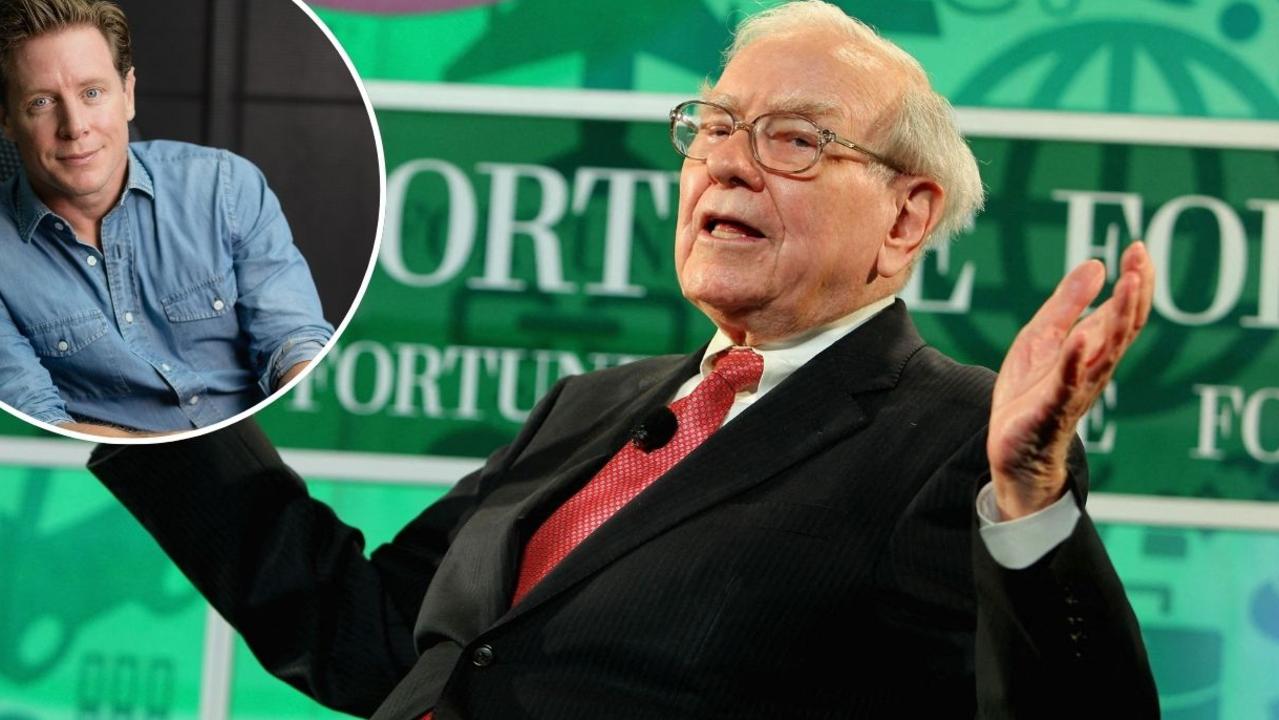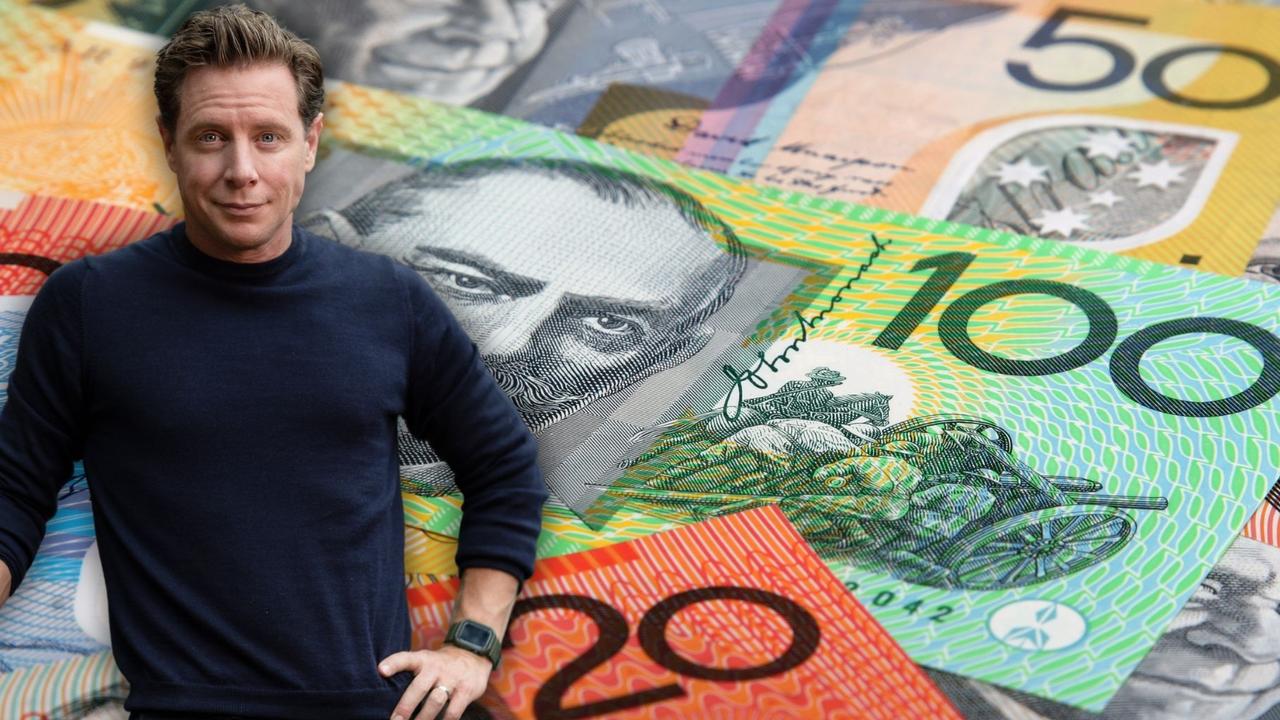How to protect kids from profit-hungry social media mega-giants
Barefoot investor Scott Pape says Facebook founder Mark Zuckerberg is a chef “serving us up dopamine-soaked donuts”.

Barefoot Investor
Don't miss out on the headlines from Barefoot Investor. Followed categories will be added to My News.
There were two weeks in July 2012 that completely changed your life forever.
However, at the time you were blissfully unaware of what was going on.
(We all were.)
What happened?
Well, it all began when Facebook listed on the Stock Exchange, which was a total and utter disaster. Within a few months its shares had crashed by more than 54 per cent.
Why?
At the time of its IPO (initial public offering), Facebook stated it had “no material revenue from mobile”. (Yes, in 2012 we were all checking our Facebook friend requests on our web browsers.)
Zuckerberg could see the writing on the wall. They were dead meat unless they got on mobile. And so, as legend has it, he pivoted the entire company to building a killer app – fast. He famously refused to have a meeting with anyone until they had presented him with what he wanted.
And in those few weeks the smartest behavioural psychologists and programmers in Silicon Valley created the very first social media app, something so powerful that it changed the course of history.
Seriously.
Let’s flip forward.
This year alone we’ll all spend the equivalent of 500 million years scrolling on social media.
(Collectively, the world spends 720 billion minutes a day using social media platforms. Over a full year, that adds up to more than 260 trillion minutes, or 500 million years of collective human time, according to a report from GWI, a consumer research company.)

In short, you’re spending way too much time on your phone, right?
Everyone is.
The Digital Australia 2024 Report by consumer intelligence company Meltwater shows that the average time users spend on TikTok is 42 hours and 13 minutes per month. Second place is YouTube, with the average user spending 21 hours and 36 minutes per month. And Aussies are some of the biggest users of Snapchat, with 17 hours across 619 individual sessions (!) per month. Facebook users spend an average of 20 hours and 15 minutes per month, and for Instagram it’s 11 hours and 45 minutes per month (which I thought would be higher, to be honest).
Is this a good use of your most precious asset?
Well, if you ask Mark Zuckerberg the answer is “Hell, yeah!”. Facebook’s profits were $US32 million in 2012 … and last year they were $US39,000 million.
Yet what about for the rest of us?
Well, Facebook interviewed eMarketer’s Ezra Palmer about the dramatically increased use of mobile, which is up 627 per cent in the last four years alone. She glowingly described it as our “connected consciousness” and brushed aside the naysayers:
“If it were not a valuable way of interacting and being, we wouldn’t be doing it. Mobile is an extension of us … it’s a fundamental shift in our psychology … it’s one thing to look at the [daily usage] numbers, it’s another to think about the amazing ramifications of that”, she gushed.
Uh-huh.
Just like all those people at the casino wouldn’t be there if it weren’t a valuable way of being.
And let’s look at those amazing ramifications.
The rise of social media has coincided with an accelerating decline in teen mental health, and hospitalisations for self-harm have exploded, especially for young girls.
Not only are today’s kids more anxious, depressed and suicidal than in previous generations, they’re also getting dumber. Australian students are among the world’s biggest users of digital devices at school, yet academic results released in December showed teens have fallen a full academic year behind those who went to school in 2000s, according to the Programme for International Students Assessment (PISA).
This all makes sense.
Social media (which has done another ‘pivot’, this time to 45-second viral videos) is the equivalent of junk food.

You wouldn’t spend upwards of 10 hours a day continuously gorging on highly processed junk food and expect to be healthy.
It’s the same for our mental health. You are what you eat … and what you scroll (and Zuckerberg is your personal chef serving us up dopamine-soaked donuts all day long).
Yet waving our fists at the tech giants is about as useful as blaming Macca’s for your kid eating Big Macs for breakfast.
We’re the parents, and we’re in charge.
And many of us have trained our children to see that a phone is the most important thing on earth. I’m ashamed to admit that at every milestone of my kids’ life – the day they were born, the day they took their first steps, the day they pedalled their first bike, and every birthday – they looked up and didn’t see my eyes … they saw the back of my phone as I yelled “Smile!”.
They also see Mum and Dad mindlessly scrolling on our phones while the world passes us by.
Again, what message do you think that sends them?
So I’ve come to a couple of conclusions.
First, if I want my kids to have a healthy relationship with technology, I need to model it myself. That means keeping my phone in a dish with my car keys and wallet at the front door – and leaving it there – so I can engage with my family without constant distraction.
Second, it’s my job to give our kids experiences they can’t get from screens.
Like what?
Like encouraging them to have friends over to hang out IRL (which is what kids actually want most). Or going on a family hike, to the beach, or to a sporting event. Or encouraging them to start their own little Barefoot Business (perhaps with a mate).
Now this sounds very aspirational, but how would you force yourself to actually do it?
Well, the fastest way would be to implement Screen Free Sundays. And that’s what my wife and I have decided to trial with our family – starting this week.
Yes, we’re trying to put the internet back in the box, and live like it’s 2012!
Tread Your Own Path!
LET THEM BE KIDS: Sign the petition
Nervous Wife
Hi Scott,
My husband and I are both in our mid-forties and have a combined income of $210,000. We have paid off our mortgage, and we lease our cars through my husband’s work as part of a salary sacrifice program. We have no other debt and around $75,000 in savings. We have been paying extra into superannuation, and when he retires from his job as a firefighter he will retire with a lump-sum payment that will be more than adequate.
But now my husband wants to invest in day trading, and has been doing a trading course to ‘educate’ himself. I’m not very investment savvy and would definitely be the more money-cautious out of the two of us. This seems a bit risky to me, but when I say this he tells me that we need to make our money “work for us”. Do you think day trading is a smart way of making our money work, or can you suggest something else that we should consider?
Nervous Wife

Dear Nervous Wife,
Ding! Ding! Ding!
I’m hearing a fire alarm, and your firefighting, risk-taking hubby is running towards the danger. The only problem is that if he begins day trading it’s your money that he’s going to set on fire.
Look, some of the savviest day traders I know have gone broke more than a few times. And these days it’s even harder because you’re trading against AI bots. It’s just not a game you can reliably win.
Allow me just one last analogy: you two have reached the top of the mountain. Yet, instead of sitting back and enjoying the view, your husband has pulled on a snowboard and is doing some tricks for some extra kicks. That’s crazy.
I’d gently remind him that your money is working for you, via your superannuation. I’d focus on how much you need to contribute to it to live comfortably. Once that is set up, I’d get him busy thinking about all the exciting things he could be doing with his time, rather than risking his money.
Enjoy the view, don’t let him screw it up!
Bob Brown Isn’t Dead!
Scott,
You think Bob Brown is dead? Shows how much you know about politics you flog!
Jim
Hey Jim,
I was joking … though hundreds of Greens supporters didn’t get it. Still, I think Old Bob is more alive than most of the current crop of Greens pollies. God bless his bamboo socks.
DISCLAIMER: Information and opinions provided in this column are general in nature and have been prepared for educational purposes only. Always seek personal financial advice tailored to your specific needs before making financial and investment decisions.
More Coverage
Originally published as How to protect kids from profit-hungry social media mega-giants




